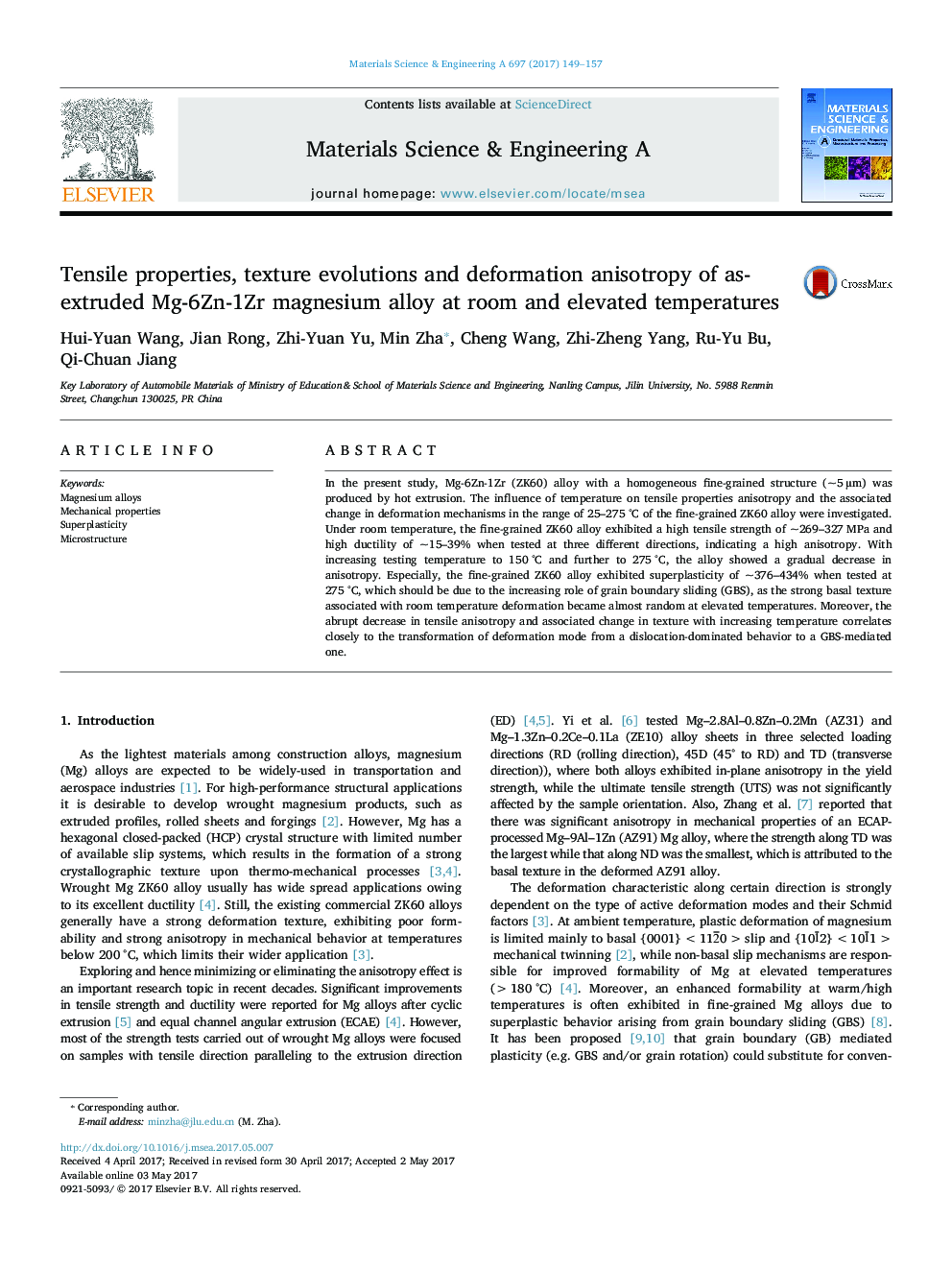| Article ID | Journal | Published Year | Pages | File Type |
|---|---|---|---|---|
| 5455761 | Materials Science and Engineering: A | 2017 | 9 Pages |
Abstract
In the present study, Mg-6Zn-1Zr (ZK60) alloy with a homogeneous fine-grained structure (~5 µm) was produced by hot extrusion. The influence of temperature on tensile properties anisotropy and the associated change in deformation mechanisms in the range of 25-275 °C of the fine-grained ZK60 alloy were investigated. Under room temperature, the fine-grained ZK60 alloy exhibited a high tensile strength of ~269-327 MPa and high ductility of ~15-39% when tested at three different directions, indicating a high anisotropy. With increasing testing temperature to 150 °C and further to 275 °C, the alloy showed a gradual decrease in anisotropy. Especially, the fine-grained ZK60 alloy exhibited superplasticity of ~376-434% when tested at 275 °C, which should be due to the increasing role of grain boundary sliding (GBS), as the strong basal texture associated with room temperature deformation became almost random at elevated temperatures. Moreover, the abrupt decrease in tensile anisotropy and associated change in texture with increasing temperature correlates closely to the transformation of deformation mode from a dislocation-dominated behavior to a GBS-mediated one.
Related Topics
Physical Sciences and Engineering
Materials Science
Materials Science (General)
Authors
Hui-Yuan Wang, Jian Rong, Zhi-Yuan Yu, Min Zha, Cheng Wang, Zhi-Zheng Yang, Ru-Yu Bu, Qi-Chuan Jiang,
